12 Beautifully Translated Books to Cure Your Summer Wanderlust
These novels and short story collections hailing from across the globe will make it feel like you got your passport stamped.

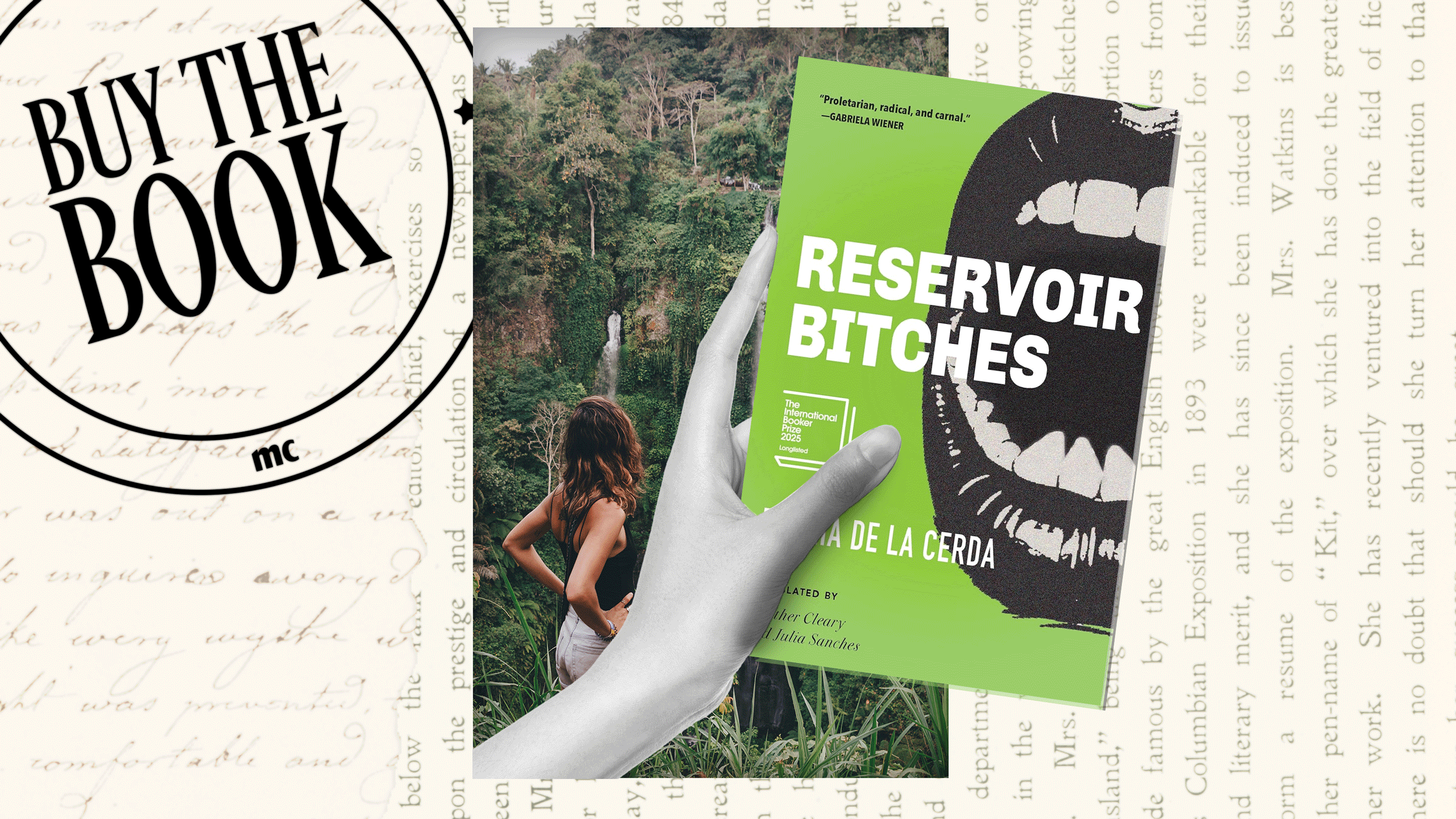
Select the newsletters you’d like to receive. Then, add your email to sign up.
You are now subscribed
Your newsletter sign-up was successful
Want to add more newsletters?

Delivered daily
Marie Claire Daily
Get exclusive access to fashion and beauty trends, hot-off-the-press celebrity news, and more.

Sent weekly on Saturday
Marie Claire Self Checkout
Exclusive access to expert shopping and styling advice from Nikki Ogunnaike, Marie Claire's editor-in-chief.

Once a week
Maire Claire Face Forward
Insider tips and recommendations for skin, hair, makeup, nails and more from Hannah Baxter, Marie Claire's beauty director.

Once a week
Livingetc
Your shortcut to the now and the next in contemporary home decoration, from designing a fashion-forward kitchen to decoding color schemes, and the latest interiors trends.

Delivered Daily
Homes & Gardens
The ultimate interior design resource from the world's leading experts - discover inspiring decorating ideas, color scheming know-how, garden inspiration and shopping expertise.
When you're looking to get lost in a book, sometimes you need your reading material to match your mood. With Marie Claire's series "Buy the Book," we do the heavy lifting for you. We're offering curated, highly specific recommendations for whatever you're looking for—whether you're in your feels or hooked on a subgenre trending on #BookTok.
Listen, travel is amazing. Whether you’re sticking close to home or crossing time zones, visiting new places can open your eyes to other cultures and help you reap once-in-a-lifetime experiences. But it can also be expensive, draining your PTO days faster than you can say, ”Mon dieu, in this economy?” These days, we’re all about being thoughtfully frugal while remaining eager to learn how different folks live around the globe. Enter novels in translation, which can whisk you away from the doldrums of daily life and plant you anywhere from the Swiss Alps to a Berlin nightclub, no baggage fees required.
That’s why we’ve rounded up some of the most exciting translated novels and short story collections to check out when you can’t leave home, whatever the reason. From a debut book of short stories about resilient Mexican women to a #Booktok-approved Italian series and the latest novel from the first South Korean author to be awarded the Nobel Prize in Literature, these books are sure to stamp your (literary) passport. Below, check out some of the top translated novels and short stories to read now. Bon voyage!
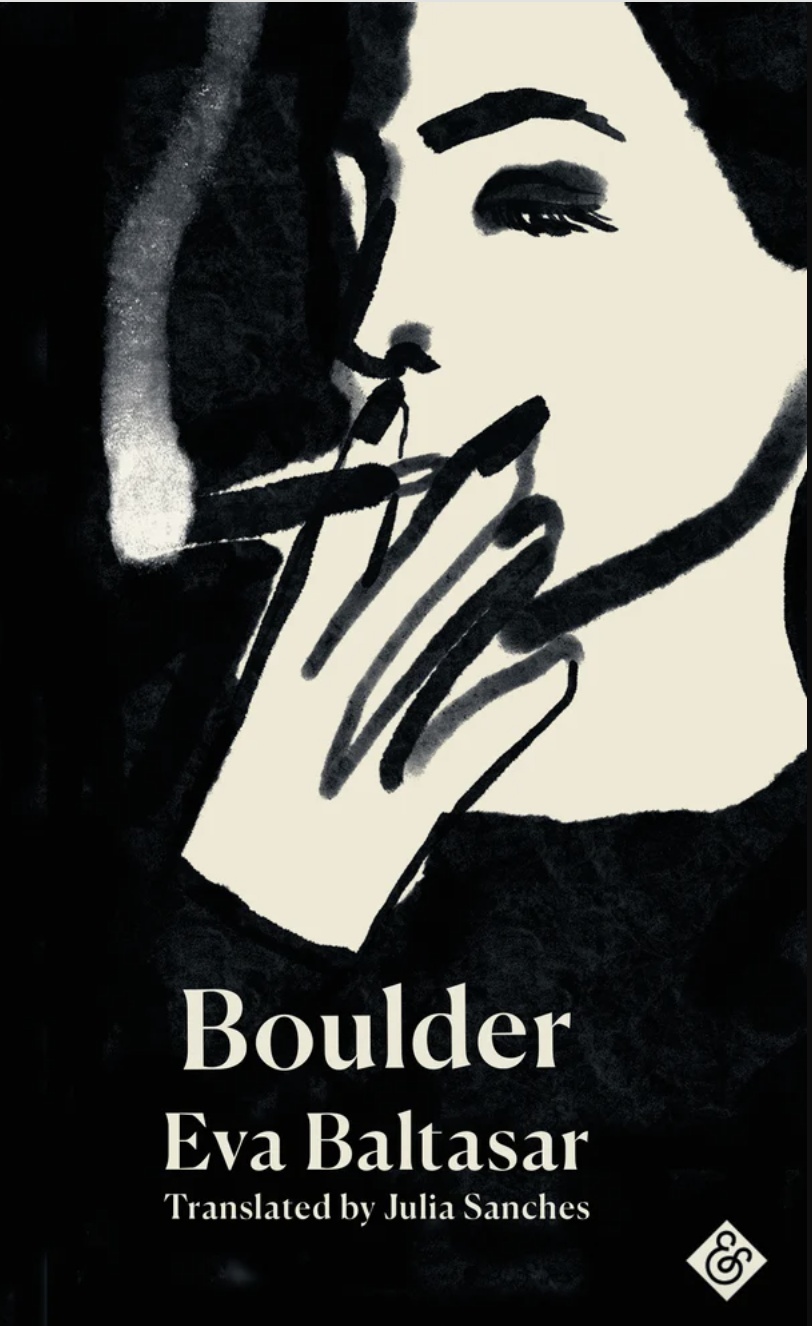
Searching for a hot and horny novel? We got you. Imagined by Spanish writer Eva Baltasar (and translated from its original Spanish by Julia Sanches), Boulder follows a restless cook on a merchant ship. One day, when docked at port, the cook meets a geologist, Samsa, who gives the narrator her nickname, Boulder. Nothing stokes the flames of romance like being out at sea, and so Boulder pines for Samsa in a way that is at once delicious and maybe low-key destructive.
But when Samsa receives a job offer in Reykjavik, Boulder jumps ship and joins her girlfriend to live in a type of domestic bliss that leaves the narrator unmoored and listless. Then Samsa decides that she wants to have a child, which pushes Boulder further onto the edges of their relationship. At once an examination of motherhood, queer love, and the sacrifice of oneself for the sake of another, Boulder is a lusty exploration of contemporary relationships.
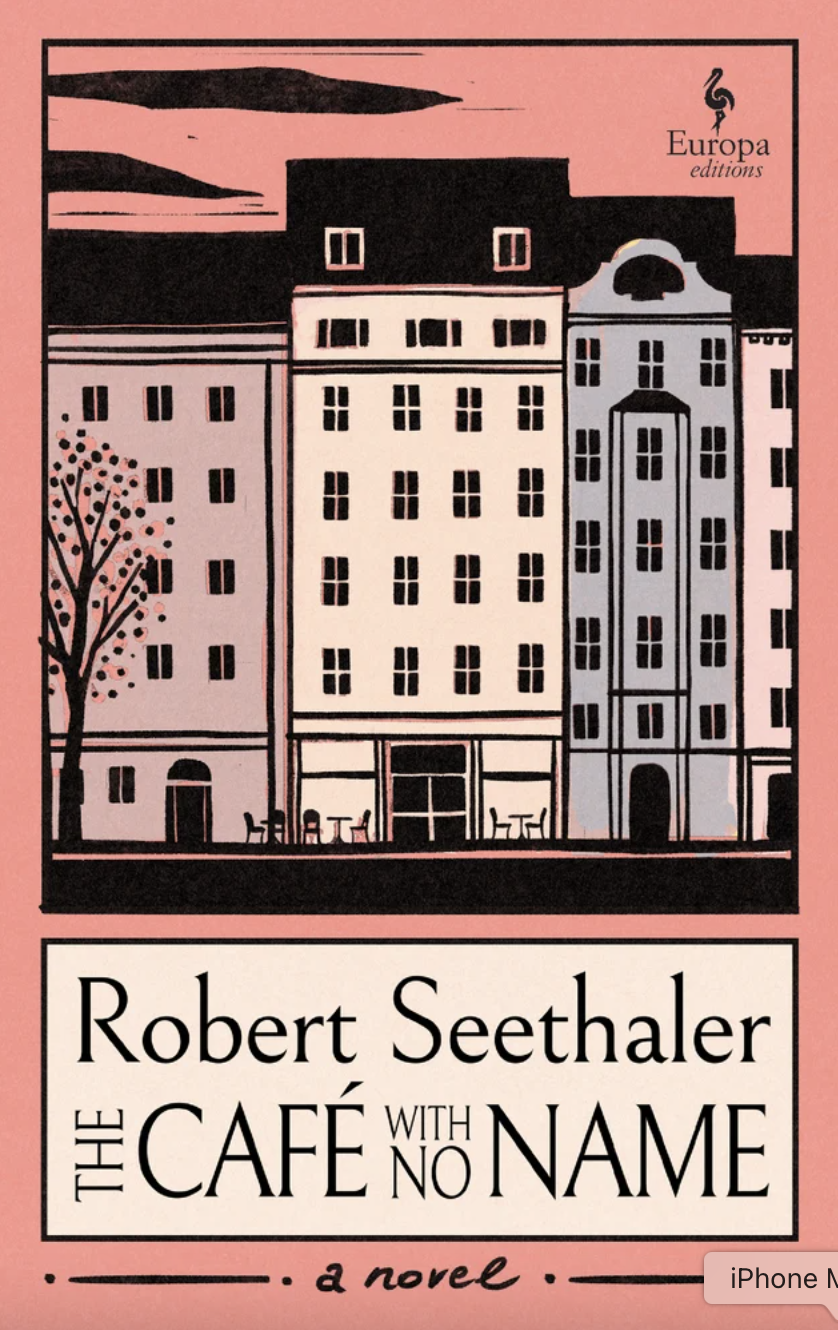
Robert Seethaler’s feel-good novel, translated by Katy Derbyshire, will deliver all the cozy vibes you could want. It’s 1966 in Vienna, and Simon is leaving his job working at the local market to revitalize a shuttered corner café. With the space spruced up and the doors open, Simon welcomes folks from all walks of life into his establishment. A testament to found family and the importance of community, The Café With No Name is a narrative about people often overlooked or neglected, banding together to support one another while swapping a story or two.
Diehards of Amor Towles's bestselling A Gentleman in Moscow will relish this novel’s gentle, timeless prose that challenges the belief that all stories must be doom and gloom to be relevant or captivating. With characters who will long stay with you after you’ve finished, The Café With No Name is a must for everyone’s TBR.
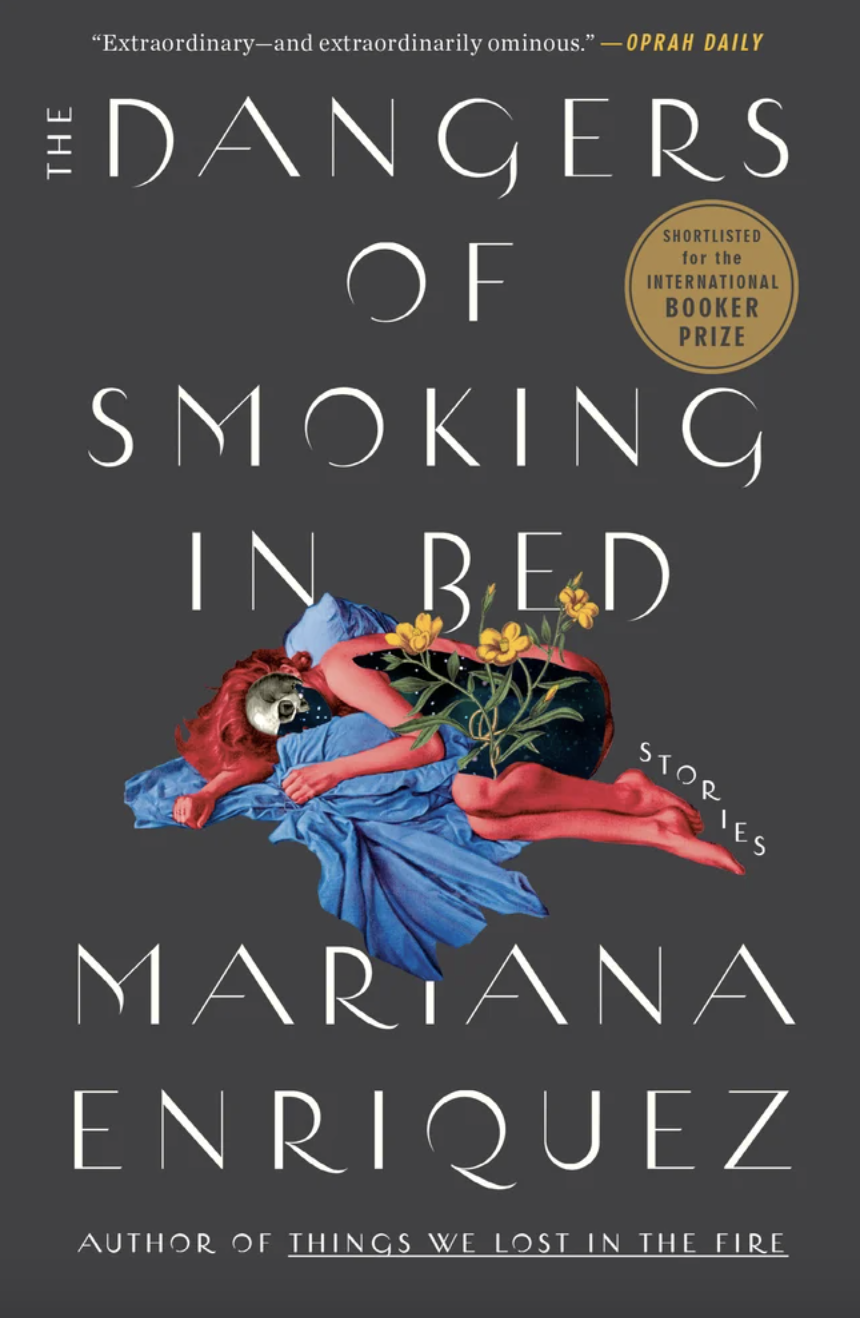
If every season is spooky season for you, don’t sleep on The Dangers of Smoking in Bed. This short story collection by Argentine author Mariana Enriquez delves into all sorts of twisty terror, often blurring folklore with other forms of the macabre. Take, for example, one story that features the haunting by a baby, relentless in its torment of the narrator. Or the title story, which is thick with foreboding after a woman hears that an apartment next door has been burned down, so, to calm her nerves, she lights a cigarette...under her bed covers. In all of Enriquez’s stories (translated by Megan McDowell), reality and fiction bend at disturbing angles, producing divinely chilling results.
Want more? If you’re looking to sink your teeth into something a little longer, consider Our Share of the Night, Enriquez’s family saga that follows a cult worshipping a form of dark witchcraft.
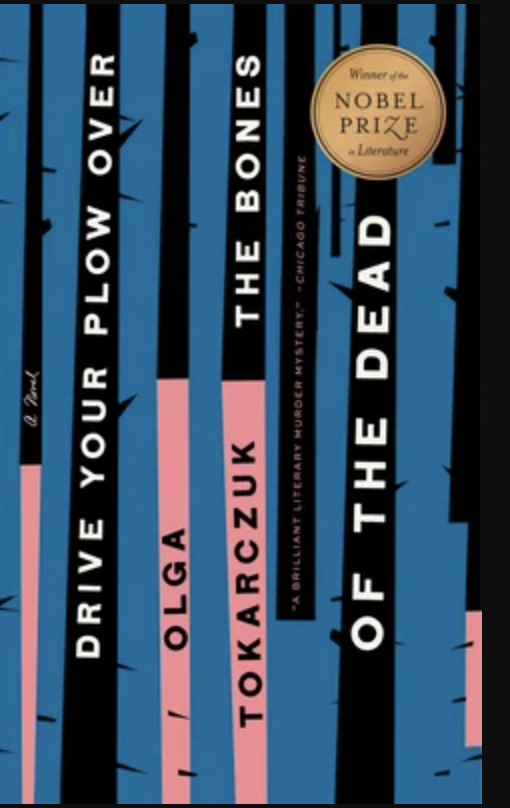
Janina is an older woman who’s found refuge in a quiet countryside village in Poland. While the town bustles with activity during the summer months, it becomes all but a ghost town once the temperatures plummet. With only her neighbors Big Foot and Oddball around, Janina relishes the surrounding natural beauty, passing the time by translating William Blake. But then Big Foot is found dead, and Janina’s curiosity is piqued. After several other local hunters go missing—and resurface dead—Janina, a devoted vegetarian, concocts a theory over what’s happened to the men: The animals are waging revenge.
With a humdinger of a reveal that got #BookTok talking, Drive Your Plow Over the Bones of the Dead crackles with propulsive suspense. Perfect for fans of mysteries like True Detective and Fargo, this novel won’t disappoint.
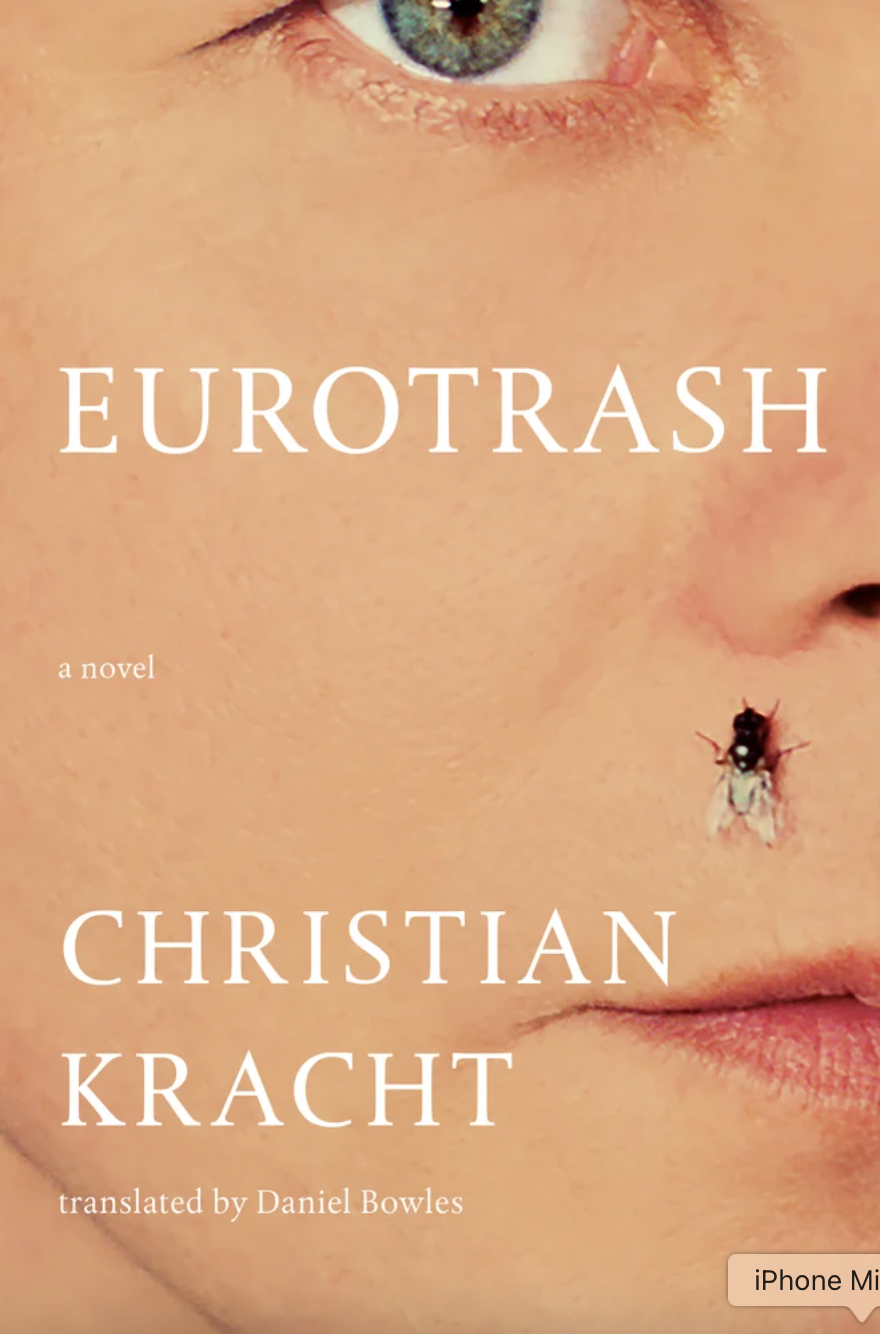
What would you do if your family earned its wealth by investing in the arms industry? Such is the premise for Kracht’s 2024 novel, Eurotrash, which dares to ask poignant and unflinching questions. Christian, the fictional narrator of the novel, has been called to Zurich by his elderly mother, who refuses everything from the internet (“too complicated”) to cell phones (“buttons are too small”).
Much to Christian’s chagrin, his mother, newly free from a psychiatric hospital, is as confounding and frustrating as ever, especially as they embark on a road trip through Germany and Switzerland. While on the road, Christian attempts to pay reparations for his family’s past misdeeds to varying degrees of success. Eurotrash is a raucous story with a thrumming undercurrent about legacy, personal responsibility, and family ties that’ll keep you turning pages well after your bedtime.
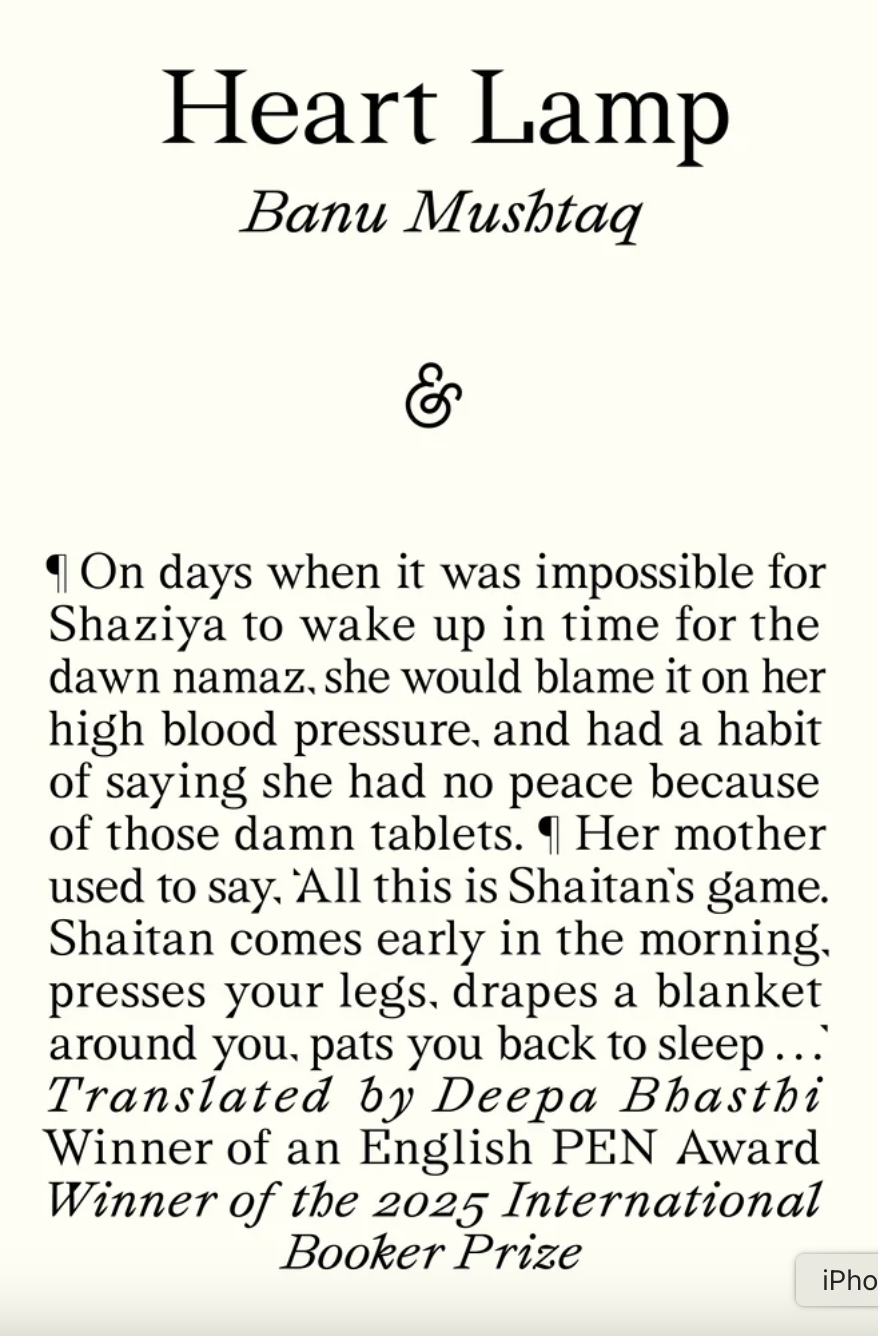
Fresh off its win of the 2025 International Booker Prize, Heart Lamp, a collection of stories by journalist and author Banu Mushtaq, showcases Muslim women and girls living in Southern India. Equally tender and hilarious, the stories in Heart Lamp touch on topics from breaking with the convention of gender roles and the language that goes along with it. Elsewhere in the story collection, regular women navigate family dynamics and question their faith. Deeply moving and relatable, Heart Lamp is the perfect gift for your friend who’s read everything.
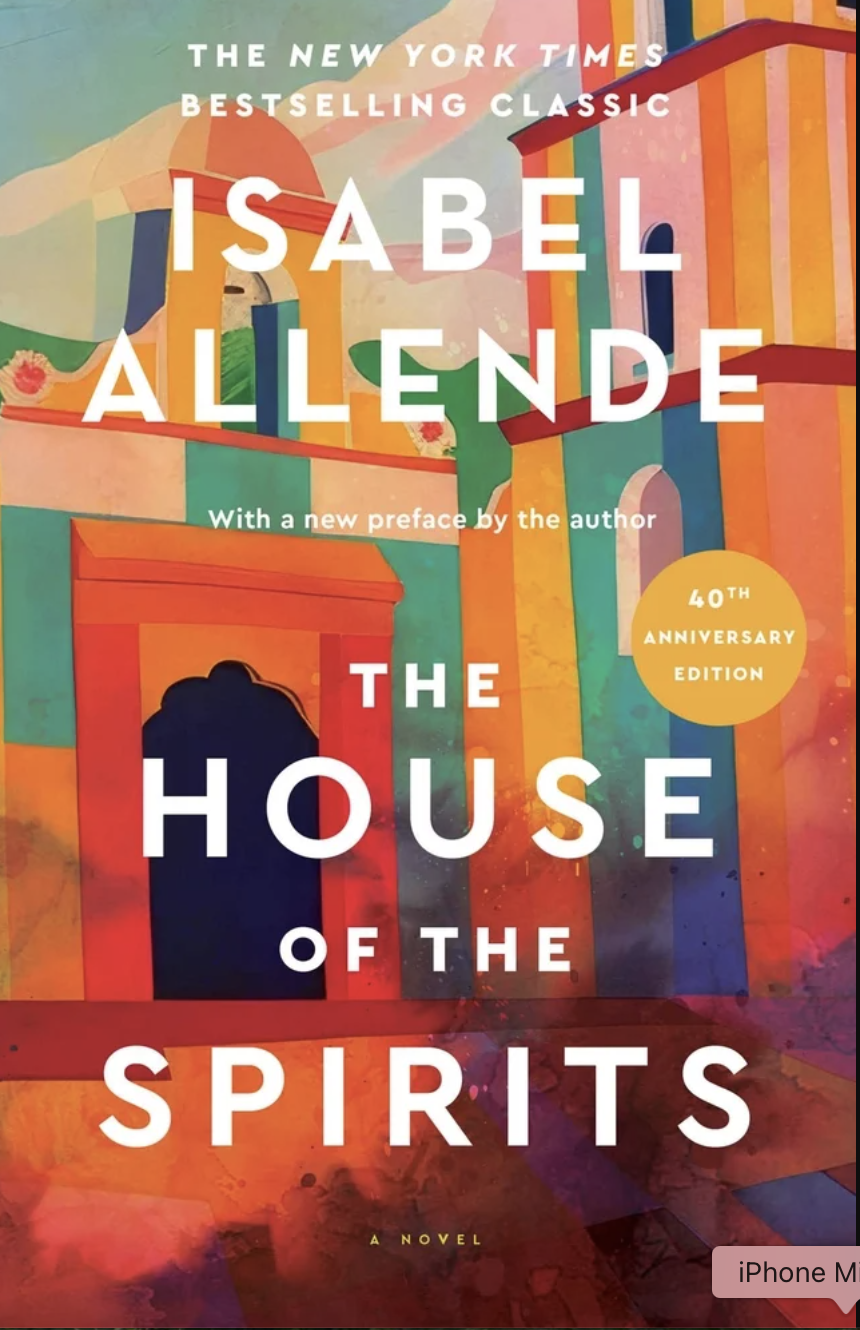
Isabel Allende fled her home in Chile for Venezuela in the 1970s after a political coup brought threats to her door. Since then, Allende has dug into her country’s past in her numerous novels (and launched a non-profit supporting women’s rights).
With over 20 novels to her name, it can be daunting to decide where to start with Allende's body of work. For us, beginning with her debut, The House of the Spirits, is a no-brainer. This sprawling epic follows the Trueba family as generations live through uprisings and tragedy. Anchoring the novel are Esteban and Clara Trueba, the latter possessing an uncanny ability to predict the future through premonitions. As the couple starts a family, their offspring bob and weave through ongoing political and personal turmoil.
Fully engrossing, this novel serves not only as a crash course in Chilean history but also as a dance through dreamlike scenes that somehow manage to root the characters in their real-life circumstances. If you’re itching for something with a whiff of the Yellowstone universe joined by a dash of magical realism, congrats, you just found your next read.
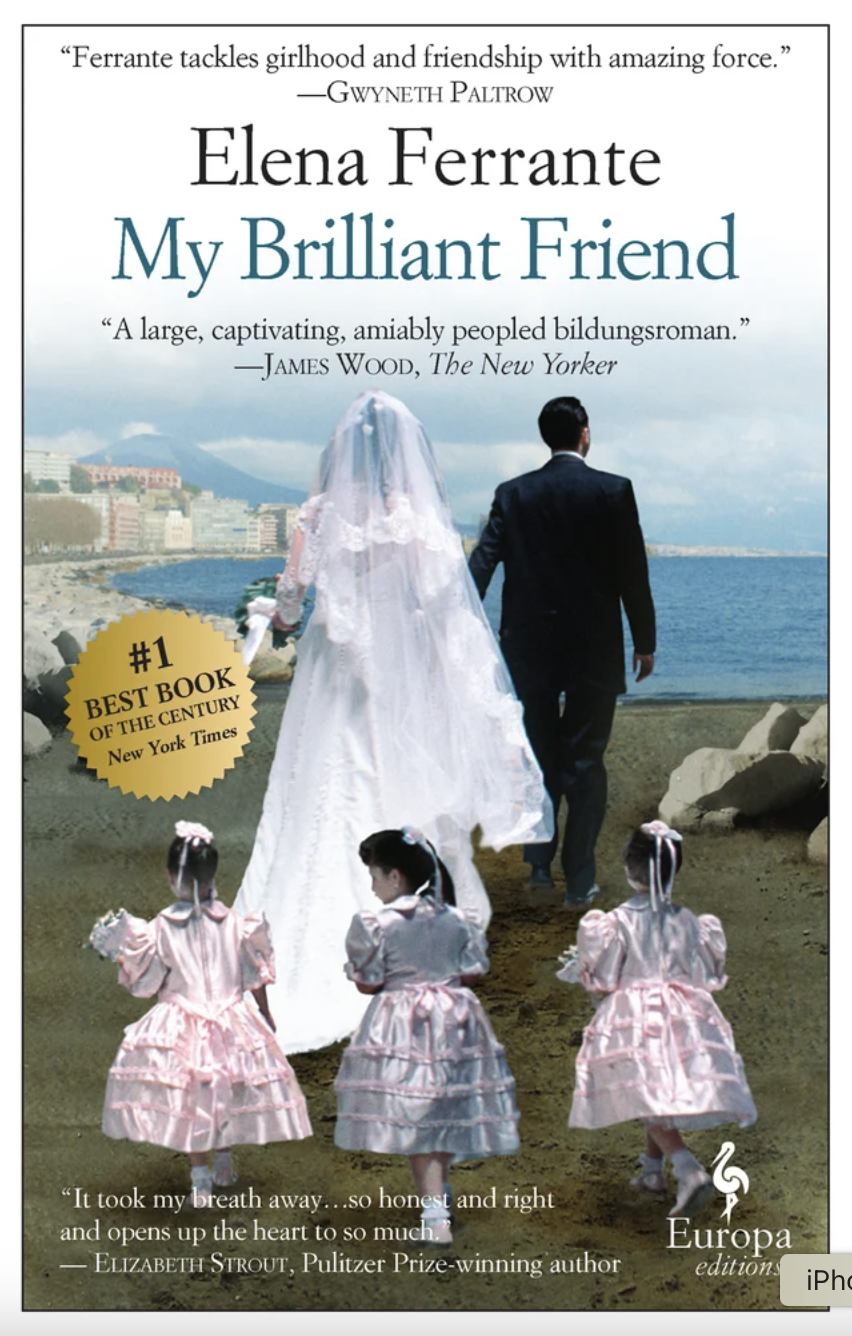
No one knows you quite like your childhood best friend. This is especially the case for Elena, the narrator of the first installment in the four-part Neapolitan series by Elena Ferrante. At the top of the novel, 60-year-old Elena finds out that her longtime friend, Lila, has gone missing. Encouraging Lila’s worried son to let her friend be, Elena reflects on their friendship, writing down what she can recall of their complicated yet loving bond.
So begins the tale of Lila and Elena. Meeting in the 1950s in Naples, Elena and Lila find a match in each other, oftentimes competing, especially in their studies. But as they approach middle school, their paths diverge: Elena goes on to school while Lila is forced to work in her father’s shoe shop, no matter her intelligence. Jealousy ensues.
Unfurled in a hypnotizing, simple prose (translated by Ann Goldstein), My Brilliant Friend (and the rest of the Neapolitan series), will hook you from the first chapter, welcoming you to historic Naples.
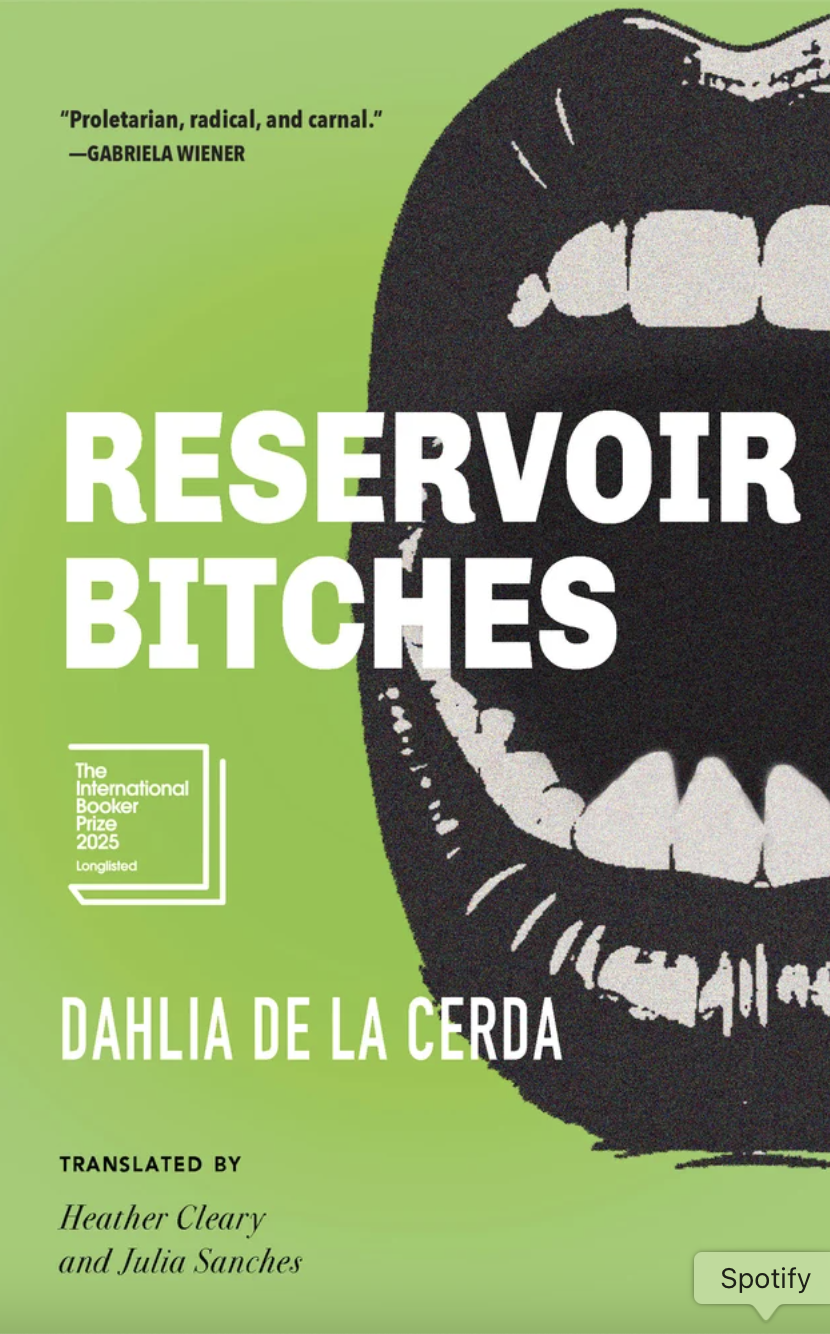
It’s not every day that a debut short story collection is longlisted for the International Booker Prize, but that’s exactly the case for Reservoir Bitches by Dahlia de la Cerda (translated by Julia Sanches and Heather Cleary, respectively). Across 13 stories, de la Cerda illuminates the spectrum of experiences of Mexican women. From a protagonist hunting down unconventional abortion methods to the daughter of a Cartel figurehead making her way through the world, de la Cerda’s prose is unflinching, scathing, and, yes, funny. With a flair for dark comedy and a voice that feels like you’re chilling with your girlfriends, Reservoir Bitches is the ideal companion for when you can’t decide if you should be laughing or crying over life.
Fans of Fleabag, Veep, or Fundamentally by Nussaibah Younis (another dark comedy must-read) will especially want to pick up Reservoir Bitches; de la Cerda manages to make even the most outlandish situations convincing, given her incisive characters and sheared-back style.
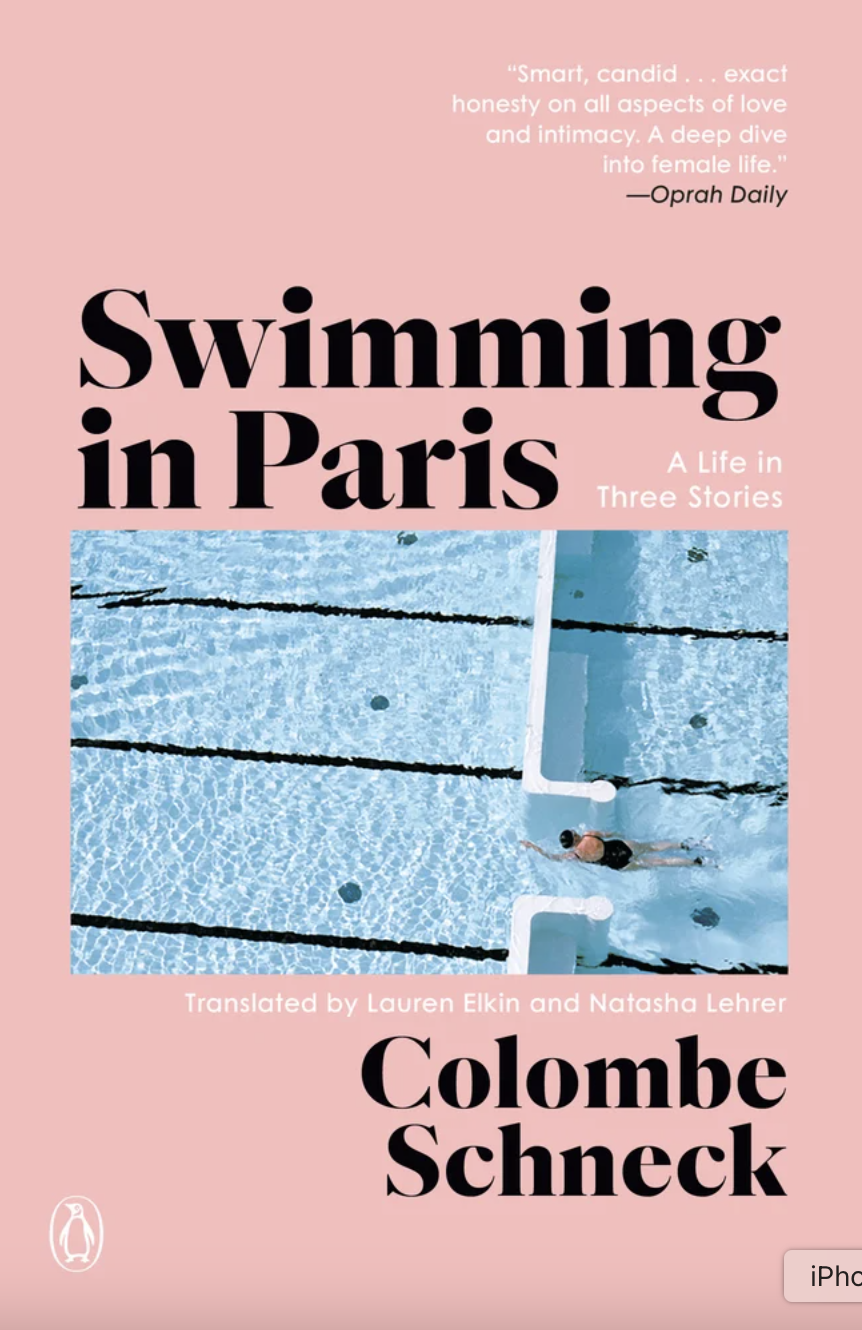
“I didn’t know what to do, so I went swimming,” writes Colombe Schneck in her auto-fiction novel. Thanks to its varying points of view and frank perspectives, this book will keep you in an absolute chokehold as Schneck returns to critical moments throughout her (thinly fictionalized) life. From easily accessing an abortion as a teenager in Paris to navigating the terminal illness of a friend to losing a lover (while gaining a hobby: swimming), Swimming in Paris suggests that, if one is capable of holding their breath while moving through whatever life flings their way, a good story, at the very least, is sure to be gained.
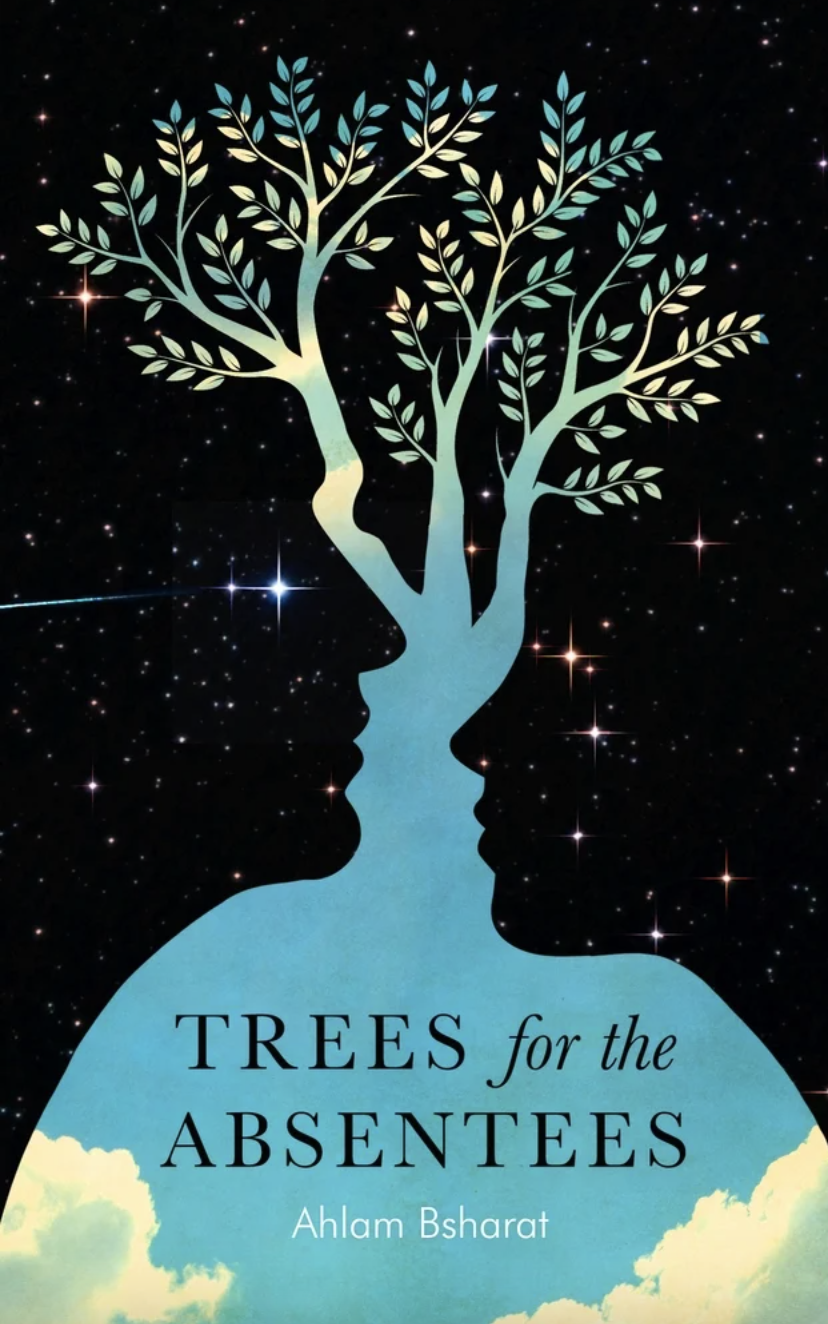
Don’t be fooled that this slim novel is penned for young adults. Trees for Absentees, by Ahlam Bsharat (translated from its original Arabic by Ruth Ahmedzai-Kemp and Sue Copeland), will shake you to your core. This coming-of-age story is set in occupied Palestine and follows university student Philistia, who's reeling from her grandmother’s death. What’s worse, her father is being held in an Israeli prison. Alone for the first time in her life, Philistia resorts to the skills and traditions imbued in her by her grandmother: cleaning the bodies of local women at the hammam, or Turkish baths. As she goes about her tasks, Philistia finds herself in a dreamland, waltzing between fantasy and reality.
Trees for the Absentees is more prescient than ever. Published in 2019, before the current conflict between Israel and Palestine erupted, this novella puts a face to the many impacted by the current humanitarian crisis in Gaza and wider Palestine.
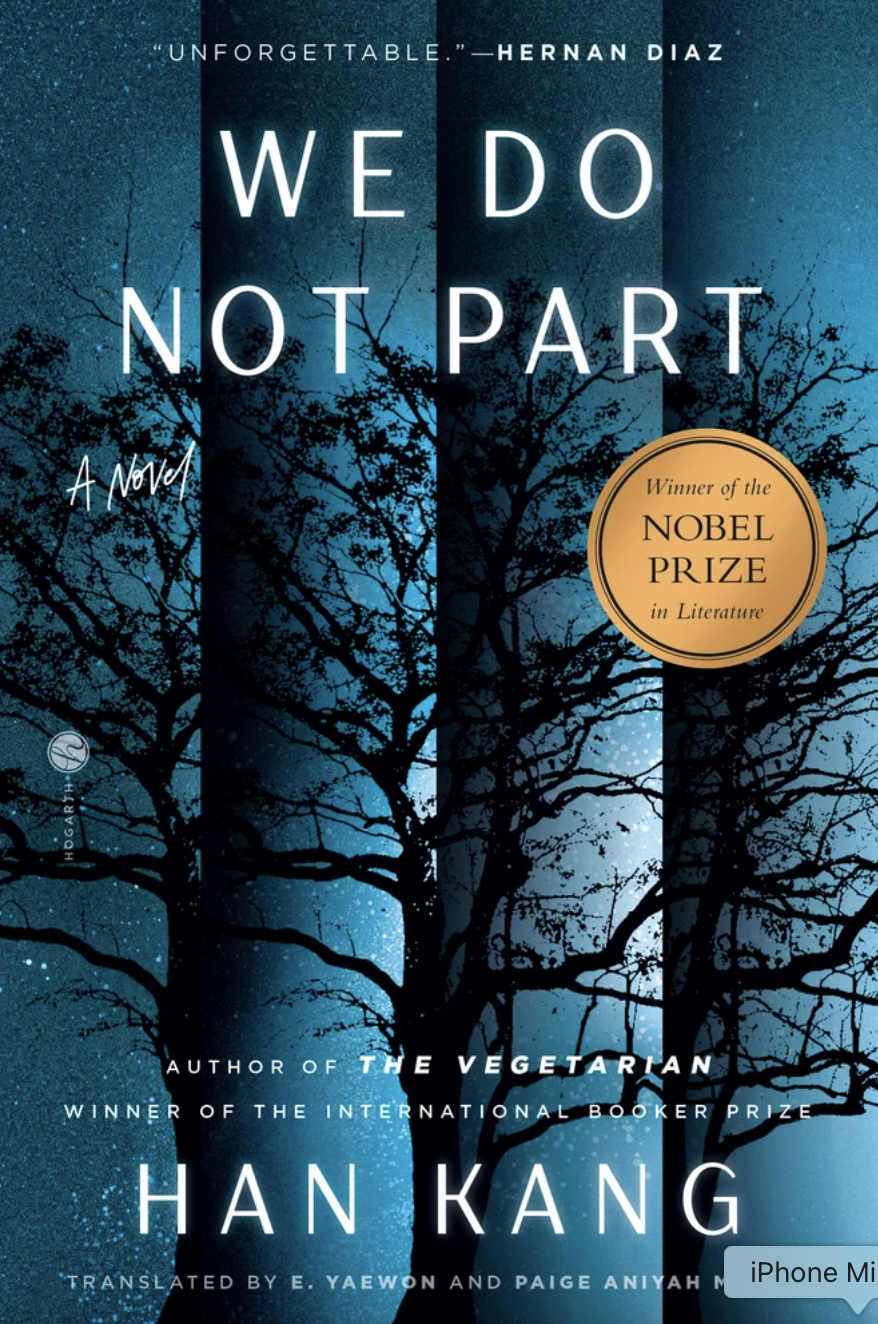
The latest novel from Han Kang, the first Korean to be awarded the Nobel Prize in Literature, We Do Not Part is a heady story steeped in magical realism. As a result, the novel is impactful and heartrending as Kang grapples with generational trauma from a frequently overlooked moment in Korean history: the Jeju Uprising and the subsequent violence it spurred.
In the novel, Kyungha is a writer living in Seoul. Plagued by nightmares after completing a book about an unnamed massacre in Korea, Kyungha is reminded of the rampage everywhere she turns. Meanwhile, her friend Inseon, a documentary filmmaker who has returned from Jeju Island, is in the hospital without a way to return to the island to feed her beloved bird. In one of the biggest shows of friendship ever, Kyungha sets off to Jeju Island while a blizzard is brewing, all to spare the bird from missing its daily macros.
Once at Inseon’s home, Kyungha is confronted with the past of her friend’s family. And, as the snow piles outside the windows, so too does the tension thrillingly build within the house. A gripping story of the history that haunts us, Kang highlights an important time in Korean history while illuminating the ongoing damage it caused.
Get exclusive access to fashion and beauty trends, hot-off-the-press celebrity news, and more.
Liz is a freelance fashion and lifestyle journalist. With nearly 20 years of experience working in digital publishing, she applies rigorous editorial judgment to every project, without losing her sense of humor. A pop culture fanatic—and an even bigger book nerd—Liz is always on the quest to discover the next story before it breaks. She thrives at identifying cultural undercurrents and relating it to larger shifts that impact industries, shoppers, and readers.
